SUMMARY
This is AI generated summarization, which may have errors. For context, always refer to the full article.

ILOILO CITY, Philippines – The Iloilo City government on Wednesday, May 10, urged water utilities and suppliers to ensure a sufficient supply of tap water during the prolonged dry season anticipated to result from the looming El Niño phenomenon.
Iloilo Mayor Jerry Treñas met with officials of utilities Metro Pacific Iloilo Water (MPIW) and South Balibago Waterworks (SBW), and bulk water supplier FLO Water to discuss preparations for the dry spell.
Treñas said the meeting aimed to secure a commitment from water service providers for ample supply in the coming months.
During the meeting, SBW announced the installation of two new pumps in its water treatment plant in Pototan town to replace those damaged in the recent flooding.
MPIW, a consortium of Metro Pacific Water Investments Corporation (MPWI) and Metro Iloilo Water District (MIWD), is finalizing the development of deep wells, which could provide an additional 5 million liters per day (MLD) of water.
MPIW serves 47,250 customers in Iloilo City and surrounding towns. The firm’s daily requirement is 80 MLD, but it can currently only deliver 71 MLD.
MPIW’s main suppliers are FLO Water (20 MLD) and Metro Iloilo Bulk Water Supply Corporation (50 MLD).
However, only half of the 71 MLD is reaching consumers due to non-revenue water, lost through leaks and pilferage, which stands at 40%.
The wastage exceeds the industry standard of 20 to 24%, prompting Treñas to prod them into lowering the non-revenue water to 15%.
FLO Water said it has 10 MLD of water available, sourced from PrimeWater, another bulk water supplier owned by the Villar group, but discussions on delivering the supply to MPIW pipes are yet to take place.
Treñas said he would meet with Metro Pacific Water Investments and FLO Water executives to discuss how to utilize the 10 MLD supply, including the possibility of connecting FLO Water’s line from Pototan town to the city.
“Right now, from FLO Water, only 20 MLD reaches the city because it’s the limit of their capacity. There were 10 [MLD] lost because the [PrimeWater] line was also lost. There are issues with the line and who would build [the line], and the price offered to the distributor,” Treñas said.
Another matter to be settled between FLO Water and MPIW is the water tariff that the latter must pay to the former, according to Treñas.
“[MPIW] may be amenable [to accept the 10 MLD] but issues are being discussed. Those are financial matters that we are [not privy to]. That’s already between the two [MPIW and FLO Water] and those are business matters that they have to discuss among themselves. Whoever would build the pipes going to the city [and] how much is the price, I will only be the bridge so they can talk, but that is their business,” he said.
Metro Iloilo Bulk Water Supply Corporation, another joint venture involving MIWD and MPWI, is considering expanding its 50 MLD supply through the development of new water wells.
Treñas warned that without additional water supply by June, the city could face rotational water schedules or rationing.
As a conservation measure, he ordered the use of treated greywater and rainwater from cisterns in La Paz Plaza for watering plants in public plazas and sidewalks.
The city government is actively seeking a new water tanker to deliver water to underserved areas.
Treñas said they were looking into the possibility of reopening previously closed deep wells, which caused an outbreak of acute gastroenteritis and cholera in 2022 due to contamination. But he said decision-makers need to be cautious about this.
“We have to prepare because El Niño is being seen to last up until March [2024], so that’s 10 months. My worry is the farmers. For us, water is also important to take a bath or clean our plates and utensils. But just the same, we have to look for ways,” he said. – Rappler.com
Francis Allan Angelo is an Aries Rufo Journalism fellow.
Add a comment
How does this make you feel?
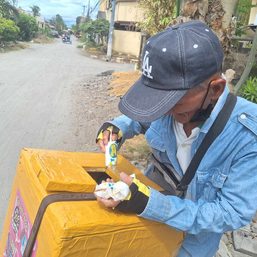


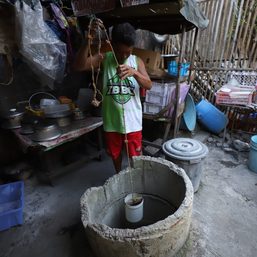
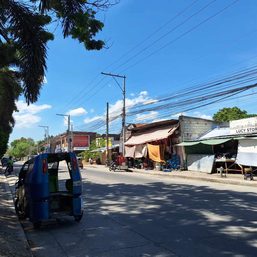
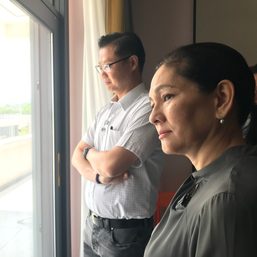
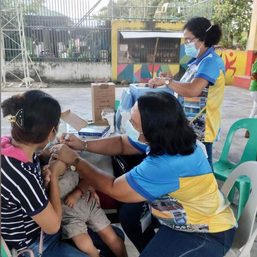


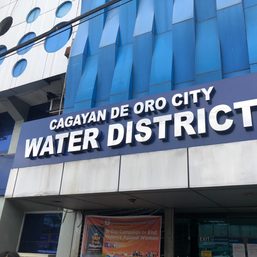



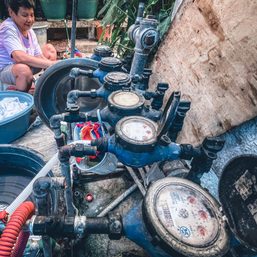
There are no comments yet. Add your comment to start the conversation.